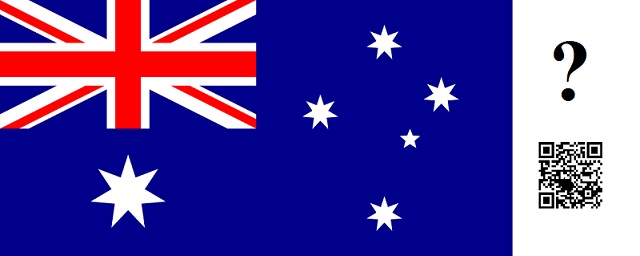ICICI Bank partners with Vodafone to introduce m-pesa
India’s ICICI Ba nk, one of the largest financial institutions in the country, is gearing up to launch a new mobile commerce service for consumers. The bank has teamed with Vodafone, a British multinational telecommunications company, in order to develop the platform and its associated application, called “m-pesa.” The mobile commerce initiation will be managed by Mobile Commerce Solutions, a wholly owned subsidiary of Vodafone, which will provide services to India’s growing mobile consumer population.
nk, one of the largest financial institutions in the country, is gearing up to launch a new mobile commerce service for consumers. The bank has teamed with Vodafone, a British multinational telecommunications company, in order to develop the platform and its associated application, called “m-pesa.” The mobile commerce initiation will be managed by Mobile Commerce Solutions, a wholly owned subsidiary of Vodafone, which will provide services to India’s growing mobile consumer population.
Indian consumers demand mobile commerce solutions
Mobile technology is becoming more common throughout India. As the country economy becomes more robust, consumers are finding it easier to purchase smart phones and other such devices. As these devices become more common, consumers are beginning to show more interest in mobile commerce and other services. ICICI Bank has taken note of this growing interest and is now moving to ensure that it can serve these consumers in an adequate fashion.
Application allows for mobile payments
The m-pesa application will allow ICICI Bank customers to use their accounts to purchase goods from retailers. The launch of the mobile commerce solution will be limited to the eastern region of India initially. This region includes Kolkata, West Begal, Bihar, and Jharkhand. ICICI Bank and Vodafone will keep a keen eye on the performance of the solution during this limited launch. Currently, the two parties foresee a phased launch, where the mobile commerce platform will be introduced to the rest of India in numerous stages.
Vodafone offers innovative security
ICICI Bank chose to team with Vodafone because of the company’s broad distribution reach and its innovative security protocols. Security is one of the most important aspects of mobile commerce and an issue that has been attracting a great deal of attention in recent months. Lackluster security from some mobile commerce platforms have left consumers with concerns regarding NFC technology and the safety of their financial information. Vodafone may be able to quell these concerns with its security features and help Indian consumers warm to the concept of mobile commerce.
Australian consumers still widely unfamiliar with QR codes
QR codes continue to be a hot top ic in marketing and have even begun to generate some hype around their use in mobile commerce. Despite the fact that the codes have become widely used, however, many consumers are still unfamiliar with the barcodes. This is especially true in Australia, where Econsultancy, a market research publisher, and Toluna, a survey and market research firm, have found that the majority of consumers do not know what QR codes are.
ic in marketing and have even begun to generate some hype around their use in mobile commerce. Despite the fact that the codes have become widely used, however, many consumers are still unfamiliar with the barcodes. This is especially true in Australia, where Econsultancy, a market research publisher, and Toluna, a survey and market research firm, have found that the majority of consumers do not know what QR codes are.
Codes still obscure despite their age
QR codes are not new technology. The codes emerged in the early 1990’s in the auto industry of Japan, developed by Denso Wave, a subsidiary of Toyota. Denso Wave used the codes to keep track of inventory. The codes eventually found their way into the hands of advertisers, who were able to leverage their striking appearance and ability to distribute information quickly to engage consumers. Over a short period of time, QR codes became rampantly popular in Japan, and are still so today. Outside of Japan, however, the codes have had more trouble finding traction with consumers.
Survey shows many consumers are unfamiliar, but also that many are well aware of QR codes
According to the survey from Econsultancy, 62% of Australian consumers do not know what a QR code is, let alone what the barcodes are meant to do. The survey does show, however, that approximately 51% of consumers between the ages of 18 and 34 recognize the codes and know how to use them, with another 51% of these consumers having used a code within the last three months. The problem seems to be awareness, as many of the companies that use QR codes either for mobile commerce or marketing do not take the time to educate consumers on what the codes actually are.
Codes picking up momentum in mobile commerce
QR codes are becoming more popular in the realm of mobile commerce, especially in terms of so called “pop-up,” or virtual stores. These stores can be located anywhere and take up little room. Instead of physical products, these stores feature pictures of products they sell, with a QR code attached. When the codes are scanned, consumers can purchase the product associated with a QR code through a mobile website. UK retailer Tesco has done this in the past, as well as other retailers throughout the world.
 nk, one of the largest financial institutions in the country, is gearing up to launch a new mobile commerce service for consumers. The bank has teamed with Vodafone, a British multinational telecommunications company, in order to develop the platform and its associated application, called “m-pesa.” The mobile commerce initiation will be managed by Mobile Commerce Solutions, a wholly owned subsidiary of Vodafone, which will provide services to India’s growing mobile consumer population.
nk, one of the largest financial institutions in the country, is gearing up to launch a new mobile commerce service for consumers. The bank has teamed with Vodafone, a British multinational telecommunications company, in order to develop the platform and its associated application, called “m-pesa.” The mobile commerce initiation will be managed by Mobile Commerce Solutions, a wholly owned subsidiary of Vodafone, which will provide services to India’s growing mobile consumer population.
 ic in marketing and have even begun to generate some hype around their use in mobile commerce. Despite the fact that the codes have become widely used, however, many consumers are still unfamiliar with the barcodes. This is especially true in Australia, where Econsultancy, a market research publisher, and Toluna, a survey and market research firm, have found that the majority of consumers do not know what QR codes are.
ic in marketing and have even begun to generate some hype around their use in mobile commerce. Despite the fact that the codes have become widely used, however, many consumers are still unfamiliar with the barcodes. This is especially true in Australia, where Econsultancy, a market research publisher, and Toluna, a survey and market research firm, have found that the majority of consumers do not know what QR codes are.